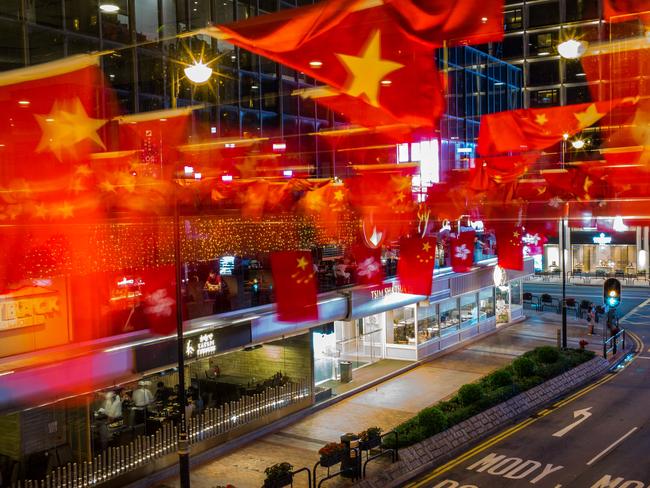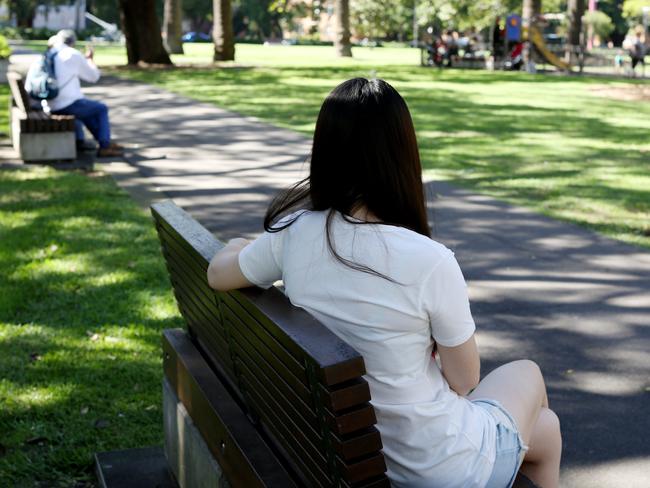Tensions rise as Chinese government’s influence infiltrates Aussie universities
CHINESE students are turning on their Australian teachers using secret videos amid growing fears about their government’s influence.
AUSTRALIAN educators are increasingly coming under attack from Chinese students, raising concerns their government’s influence is permeating our universities.
The students have been openly complaining about Western teaching methods and ideas, and publicly demanding apologies or changes to how subjects are explored.
The trend has raised concerns that the ideology of China’s Communist Party is weaving its way into Australian academic teaching through overseas students.
Chinese students have even released footage online - filmed secretly in classes - of professors teaching classes that contradict Chinese ruling party ideology.
As a result of the critical videos published on Chinese websites and social media, some students received apologies from the academics.
Last week, a Chinese University of Newcastle student posted a YouTube video of him arguing with a professor who referred to Taiwan and Hong Kong as independent countries. “You are making us feel uncomfortable,” the student is heard saying to business professor Nimay Khaliani. “You have to consider all the students.”
Professor Khaliani replies: “Exactly, all the students, not one set of students.”
The video was published on several Chinese websites and provoked a backlash from readers, with Newcastle University eventually contacting China’s consulate-general to resolve the matter.
Days before the Newcastle University incident, a Chinese website reported that students at the University of Sydney were outraged at IT professor Khimji Vaghjiani displaying a map showing three regions contested by China and India as being part of India.
Mr Vaghjiani said in a statement. “Over 18 months ago, I used an out-of-date map, downloaded from the internet ... I was unaware that the map was inaccurate and out-of-date. This was a genuine mistake and I regret any offence this may have caused.”
The communist party-owned newspaper Global Times later wrote: “The China-India border dispute broke out in Australia, and China won!”
There was also controversy when the Cambridge University Press agreed to the censorship of an academic journal for China, removing 300 articles. On August 21, it said it had reinstated them.
And back June, an academic at the University of Sydney said the Chinese consulate had asked the instiution to reconsider holding a forum on the Tiananmen Square protests.

THE POST-TIANANMEN WORLDVIEW
The Lowy Institute’s East Asian director Merriden Varrall told news.com.au there was “certainly an increase” in the “willingness of Chinese students to stand together and push back against what they perceive as injustice” in Australia.
“I don’t think it’s about the Chinese embassy saying do this, act in this way. I don’t think that’s out of the question, but it reflects students’ beliefs.”
These young people have been brought up indoctrinated into certain beliefs that flatter China’s government, according to Dr Varrall, who said she was regularly told by student to change her methods while teaching in Beijing.
She said Chinese students were not taught to engage with critical thinking and interpretation, and often struggled to question ingrained beliefs. “After Tiananmen Square in 1989, China really ramped up the ideology,” said Dr Varrall. “It creates a view of the world all Chinese young people share.”

She said many of these students had strong sense of territoriality and sovereignty and believed their country had been victimised by the outside world for years. Issues such as whether Taiwan should be an independent country — it currently is not — are very “emotional” for them, and “hard for them to have an objective discussion about.”
Despite concern over blossoming Chinese interests in various elements of Australian life, it is dangerous to conflate the issues, Dr Varrall warns. Such conditions leave our society and institutions ripe for racism, with anti-Chinese flyers found at two Melbourne universities last month.
Was shocked when seeing this post that said Chinese students are not allowed to the building otherwise they'll be deported! pic.twitter.com/LV2ZXkw3PM
— Lisa Ting Lu (@lisatinglu) July 24, 2017
‘DEBATE IS NOT NORMAL IN THEIR COUNTRY’
Earlier this month, an Australian National University computer science professor came under fire on Chinese social media after he was photographed lecturing beside a slide that read, in English and Chinese, “I will not tolerate students who cheat.” The professor later wrote a lengthy apology, calling it a “poor decision” and adding that he was “not sensitive to how some people would interpret it.”
In May, an Australian lecturer at Monash University was suspended after Chinese students found a test question that joked that their country’s officials only tell the truth when they are “drunk or careless.”
Dr Varrall believes we “need to do more to understand the complexity of China’s influence” and not let their students — whose fees are now vital to Australian universities — feel isolated or as though the Australian environment is antipathetic to their interests.
“From what I can see, the Australian Government is alert to the situation,” she said. “We need to ensure Chinese students in Australia are really supported.
“A lot of them don’t speak in class because they are afraid their language skills aren’t up to it. Debate is not normal in their country, they don’t have that practice.
“You get students unwilling to participate, befriending others in similar situations and then you don’t get that integration and cross-pollination of ideas.”



